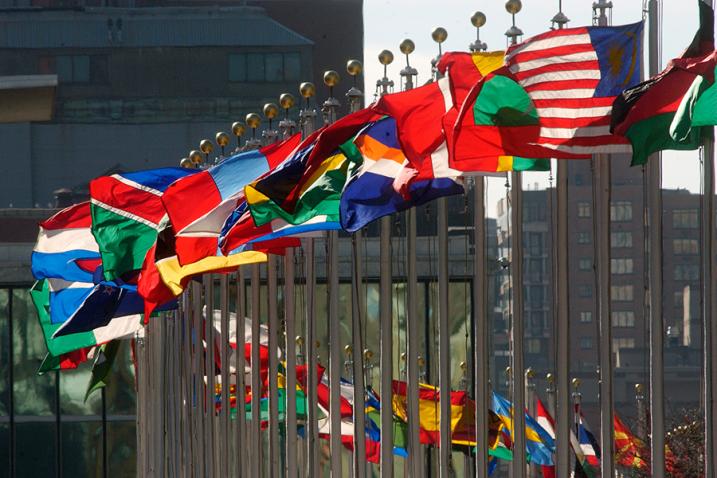The United Nations has long been recognized as a beacon of hope and a bastion for global cooperation, where nations converge to bridge ideological chasms. The UN Pact for the Future emerges as a renewed call for collaborative effort, reminiscent of a great tapestry, woven with threads of dialogue, negotiation, and shared aspiration. It encourages countries to transcend their own limitations, seeking a symphony of united hearts and minds directed towards the greater good of humanity. From a Christian perspective, this initiative presents an intriguing opportunity to explore the intricacies of global cooperation through the lens of faith, love, and moral responsibility.
Ties among nations are analogous to the bonds within a family—interconnected, complex, and essential for harmony. The Christian doctrine venerates the notion of unity. In John 17:21, Jesus prays for His followers, pleading, “that they may all be one.” This divine exhortation resonates deeply within the fabric of international collaboration. The UN Pact serves as a clarion call for unity among nations, wherein various cultures and belief systems can converge to face the pressing challenges of our time. In the spirit of Christ’s teachings, we are reminded that empathy and understanding are cornerstones that build bridges over turbulent waters.
As we wade deeper into the complexities of global cooperation, the compendium of issues that requires our collective attention unfolds like pages of an ancient manuscript. Climate change, social inequity, pandemics, and altered geopolitical landscapes are merely a few of the predicaments that necessitate concerted action. In the Christian sanctum, stewardship of creation is not merely a duty; it is a sacred calling. The Earth, an intricate canvas crafted by the Divine, requires our guardianship. The UN Pact underlines this imperative, galvanizing nations to engage in strategic partnerships for environmental sustainability, akin to the biblical parable of the talents, where servants are called to wisely manage the gifts given to them by their master.
In the quest for equitable prosperity, the value of justice emerges as a guiding principle in the Christian worldview. The prophetic call for justice echoes through the ages, where Micah 6:8 reminds us to “act justly, love mercy, and walk humbly with your God.” The UN Pact aims to foster socio-economic advancements that cater to the marginalized and disenfranchised. This is not merely an act of charity but a profound recognition of the equal dignity bestowed by God upon every individual. The theological underpinning of justice parallels the goals of sustainable development, which seeks to uplift vulnerable populations and grant them agency over their own destinies.
The pursuit of global health further elaborates our aspiration for collective well-being. The COVID-19 pandemic has unveiled the fragility of human life and the interconnectedness of nations in facing existential threats. Just as the body of Christ is composed of many parts, with each part bringing unique strengths, so too must our global community unite to combat health crises that jeopardize human existence. The UN Pact calls for shared responsibilities in promoting health equity, ensuring that lifesaving resources are accessible to all, saturating the globe with the love that springs from a compassionate heart. The moral imperative for Christians to care for their neighbors transcends geographic boundaries, embracing all of humanity as one family created in the image of God.
Engendering global peace is another tenet woven into the UN Pact’s fabric, resonating with the biblical promise in Matthew 5:9, “Blessed are the peacemakers.” Herein lies a profound challenge: to not only avert conflict but to actively cultivate environments conducive to tranquility and reconciliation. In this era, when sectarian strife often takes center stage, there is an urgent need for dialogue rooted in humility and religious tolerance. The UN Pact fosters platforms where diverse faith traditions can converge, fostering dialogues that deepen mutual respect and dismantle barriers of misunderstanding. This, indeed, is a parable for our times—one where differences are not merely tolerated but celebrated as part of the beautiful mosaic of creation.
Equally, the empowerment of women and youth must remain at the forefront of global cooperation efforts. The scriptural mandate in Galatians 3:28 offers a reaffirmation of the intrinsic worth of all, affirming that there is neither male nor female, for all are “one in Christ Jesus.” The UN Pact’s focus on gender equality and youth engagement mirrors this divine principle, calling for the elevation of voices and participation from those historically marginalized. Empowered individuals become catalysts for change, carrying the torch of hope and innovation into their communities and beyond.
In conclusion, the UN Pact for the Future encapsulates a vision for a collaborative world, drawing inspiration from the timeless principles of Christianity. It underscores the inherent value of unity, stewardship, justice, health, peace, and empowerment. As nations collectively navigate the complex tapestry of global challenges, the call to exhibit Christian virtues becomes ever more pertinent. The venture into global cooperation, while fraught with complexities, offers a path towards transforming our shared world through the lens of faith, compassion, and action. Each endeavor undertaken in the spirit of the UN Pact is an invitation to fulfill the biblical call to love our neighbors as ourselves, echoing the timeless truth that we are, indeed, our brother’s and sister’s keepers.



